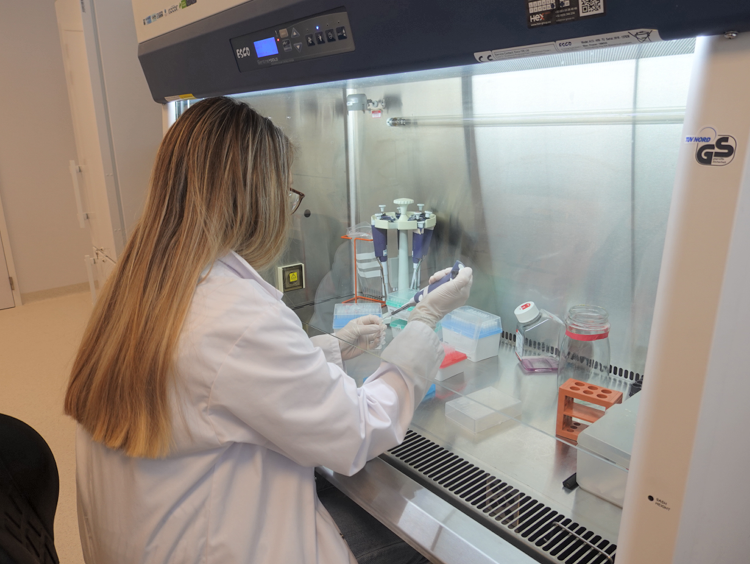Health problems
T cell lymphomas

T cell lymphomas are a heterogeneous group, in terms of presentation, treatment and prognosis. They have quite complicated names and cover more than 30 subtypes. These fall into a number of categories: primitive cutaneous, peripheral, leukemic and extranodal. Primitive cutaneous T cell lymphomas are a distinct group and are treated in cooperation with dermatologists. Nodal T cell lymphomas affect the lymph nodes as do other lymphomas while extranodal T cell lymphomas affect various organs, such as the digestive tract, liver and upper respiratory tract.
A T cell lymphoma is difficult to diagnose and requires multidisciplinary expertise. The clinical presentation is often insidious and polymorphic, which is why doctors need extensive experience to envisage this diagnosis. It is essential to perform a biopsy on the affected lymph node or organ to confirm the diagnosis. To analyse the tissue, the services are required of an anatomopathologist specialising in haematology and possessing specific knowledge and command of techniques. For the most difficult cases our centre works with international review networks to be absolutely certain of the diagnosis.
Treatment is based on a combination of chemotherapy/immunotherapy that varies depending on the T cell lymphoma subtype, location and the patient’s general state of health. For certain lymphomas, the option of a haemopoietic stem cell transplant is discussed while in other cases this is clearly recommended as a first-line treatment.
The treatment available for T cell lymphomas remains limited and often insufficient. Our hospital nevertheless participates actively in clinical trials that make it possible to explore new treatment options, thereby offering innovative perspectives for patients.
Understanding the nature of your illness and its treatment allows you to better manage your health. You will be issued with a patient logbook to ensure you are well informed and have the useful telephone numbers.
During treatment it is essential to monitor your temperature and to go to the emergency department if you develop a fever. For other symptoms such as breathing difficulties or unusual bleeding you are also recommended to go to emergencies.
Following treatment, during the period of remission, be attentive to any symptoms, such as a worsening of your general state of health or the appearance of lymph nodes.
In case of any problem do not hesitate to contact your haematologist or coordinating nurse.
Our centre is committed to working with research groups such as the LYSA (Lymphoma Study Association). We play a role in clinical research, seeking to answer crucial questions on existing care and treatment and the development of new treatment. We also take part in initiatives for systematic centralised case reviews, thereby guaranteeing a collaborative and expert approach to the diagnosis and treatment of T cell lymphomas.
Our centre is recognised as a Eurobloodnet expert centre on this rare form of lymphoma.
Department of Haematology
Department of Anatomical Pathology
LHUB (Brussels University Hospital Laboratory)
Department of Radiology
Department of Nuclear Medicine
Physiotherapy
Psyscho Oncology
Dietetics
Dr Alice Wolfromm